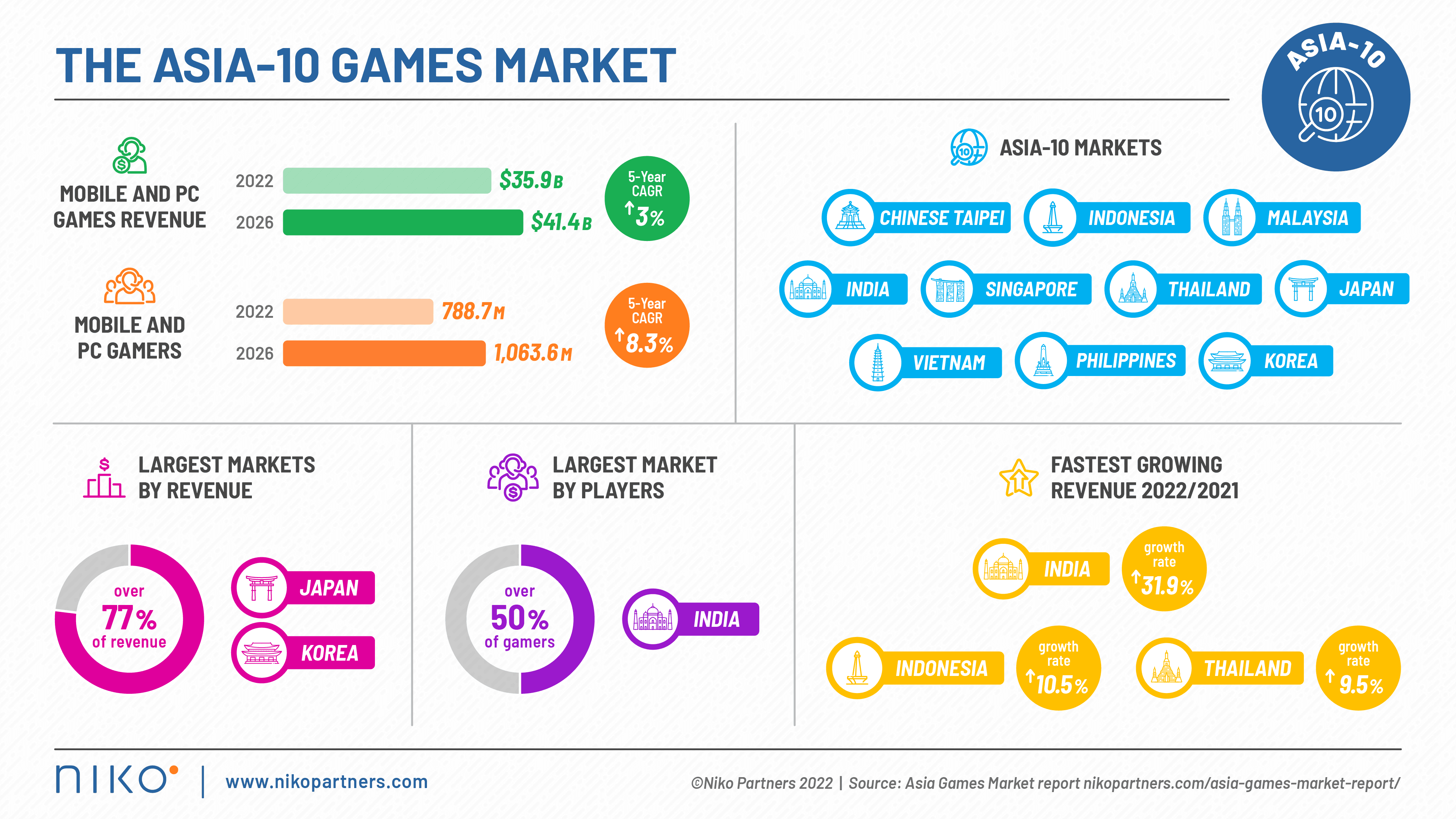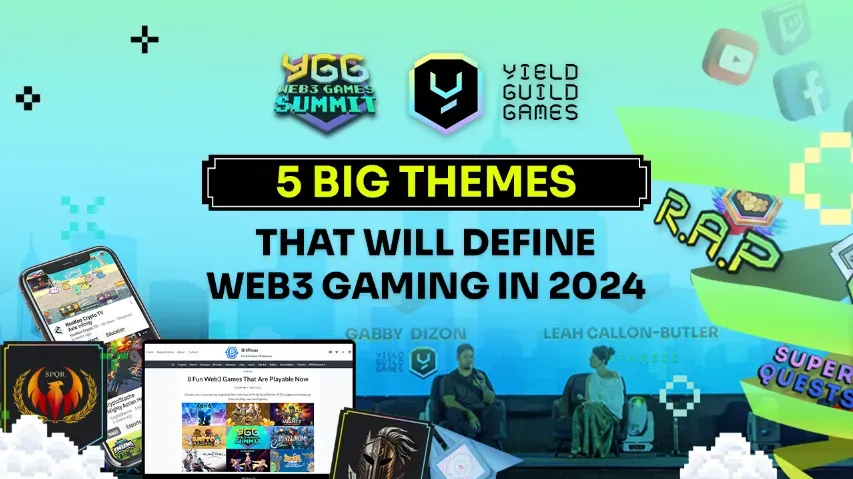Recently, Gabby Dizon, co-founder of Yield Guild Games (YGG), and Luke Barwikowski, founder of Pixels, engaged in a detailed discussion about their approaches to web3-native community building, incentive structures, and engagement models. Their conversation, moderated by Leah Callon-Butler, Director at Emfarsis, took place during a Pixels Energy Party on July 26th. In this article, we provide a summary of their discussion and highlight key takeaways, including the secrets to Pixels growth.
First, What is Pixels?
Pixels offers an engaging open-ended world where players can immerse themselves in farming, resource gathering, and exploration. The game is designed to blend blockchain ownership with player progression and achievements. Players advance their skills, build relationships, and unravel stories and quests within the Pixels Universe. With a focus on accessibility and fun, Pixels aims to be the "gateway for millions into the world of web3 gaming". The game is built on the Ronin blockchain and is currently playable via browser.
Pixels' Migration to Ronin Network Sparks Adoption
Pixels initially launched on Polygon in 2022 and experienced modest success before making a significant leap by migrating to the Ronin Network in late 2023. This move greatly enhanced its adoption in Southeast Asia, particularly in the Philippines, a region known for its active engagement with web3 games, largely due to the success of Axie Infinity
By the time of the YGG Web3 Games Summit (W3GS) in November 2023, Pixels had achieved significant milestones, including reaching 100k daily active users (DAU) on the Ronin Network, with a majority being Filipino players. By March 2024, Pixels further expanded its user base, hitting 1 million monthly active users (MAU) and over 300k daily active user wallets (DAUW). The integration of Pixels into YGG’s Guild Advancement Program (GAP) contributed to this growth, fostering additional player engagement through quests and guild systems.
Daily Active User Wallets
Role of Southeast Asian (SEA) Gaming Market
Southeast Asia (SEA), a region of diverse cultures, languages, and economies, is emerging as a powerhouse in the global video game industry. With a rapidly growing population, and a thirst for gaming, live streaming, and esports, Southeast Asia has become a prime destination for game developers, hardware manufacturers, and investors. Data from the 2022 SEA-6 Games Market Report by Niko Partners highlights the growth of six key Southeast Asian markets (Indonesia, Malaysia, Philippines, Singapore, Thailand, and Vietnam).
“The Philippine market is crucial, as it has been recognized as the epicenter of web3 gaming adoption, topping CoinGecko’s global list for interest in web3 gaming for three consecutive years. This significance was highlighted when a Pixels AMA held at a ‘Filipino-friendly time’ in March 2024 attracted double the usual number of attendees. The event garnered 82,000 viewers, compared to the typical reach of 40,000 during its standard Pacific Standard Time slot.”
Despite Pixels’ achievements in Southeast Asia, Gabby observed a prevalent criticism that gamers from emerging economies, such as the Philippines and Latin America, are perceived as less valuable compared to players from Western countries like the United States. Conversely, Luke reported that, based on his experience, gamers from these regions are often willing to make in-game purchases, although their motivations may vary.

The Asia-10 Games Market Niko Partners 2022
Birth of the Play-to-Airdrop (P2A) Trend
As Pixels prepared for the launch of its PIXEL token, Luke Barwikowski introduced the play-to-airdrop (P2A) model. Unlike traditional airdrops, the P2A model required users to demonstrate active community engagement and in-game progress to qualify for token rewards. This approach aimed to ensure that rewards were distributed based on genuine participation, rather than leading to immediate sell-offs and decreased user retention.
“There’s no point getting users if you can’t keep them. Earnings have always been a strong driver behind players’ interest in the game. One particularly effective retention mechanism, which has since been retired, was the soft currency, $BERRY.”
The P2A model proved successful in maintaining user engagement, a challenge often faced by similar campaigns. Pixels’ effective use of the P2A strategy helped sustain a robust user base beyond the initial campaign phase. This model has since become a common practice among web3 games for user acquisition (UA), though Pixels' focus on retention and player engagement set it apart.
“Instead of spending on traditional advertising platforms like Facebook, we decided to redistribute that value to our player base as a reward for their efforts to grow the platform.”
Pixels Screenshot
Play-to-Earn (P2E) Remains Popular Despite Critics
Despite criticisms, both Gabby Dizon and Luke Barwikowski support the viability of the play-to-earn (P2E) model. They draw parallels with traditional MMORPGs like Runescape and World of Warcraft, where players engage in economic activities for in-game benefits. In web3, the ability to trade and sell in-game assets adds a layer of complexity but also presents opportunities for deeper player engagement.
“At Axie’s peak in mid-2021, the game’s retention metrics were ‘mind-bogglingly insane’ because of the high earnings players were able to achieve at that time. While that level of retention was unsustainable, Pixels is now going granular to determine exactly which metrics are needed to retain a Play-to-Earn (P2E) user.”
Luke emphasized that P2E could be a powerful tool for player retention, as long as developers understand the metrics needed to sustain interest and reward appropriately. By analyzing earnings and user engagement, Pixels aims to refine its approach to maximize the effectiveness of its P2E incentives.
“Play-to-Earn (P2E) will inevitably expand the total addressable market (TAM) of the gaming industry. Currently valued at approximately $200 billion, the industry is predominantly entertainment-focused. The economic elements of P2E, combined with the ability to own and trade in-game assets, will attract more people to these games, who might not have engaged with games that offer only entertainment value.”
Pixels Cover Banner on X
Enhancing Engagement Through Social Activities
Luke Barwikowski shared insights from his previous experience with digital conference spaces, noting that frequent and engaging activities are crucial for maintaining user interest. Pixels incorporates daily activities and social events to keep players engaged, including in-game gatherings like energy parties. These events not only provide rewards but also foster a sense of community, encouraging players to interact and participate regularly.
“During special community events, players can gather at various in-game locations for an ‘energy party,’ where everyone is rewarded with energy for the event's duration. These energy parties have proven to be an effective method for boosting community engagement. Players now look forward to these events as a chance to connect with their guildmates and friends, sharing a collective experience in real time.”
Pixels Community Event
Importance of Building in Public Despite Challenges
Pixels adopts a transparent and iterative development approach, seeking constant feedback from its community. This strategy, while challenging, allows for rapid adaptation and improvement based on user input. Both Gabby and Luke acknowledge the difficulties of building in public but highlight its importance for maintaining trust and aligning development with player needs.
“If we tried doing this without any communication with our players, and we released unpolished features, and we were just like these devs that never really talked to the community, I think we would have a lot of angry users. And this is why we’re building in public, because we hear their feedback and we hear their concerns, and the whole point of us doing it with the community is we want to make the changes necessary to kind of ease those concerns from people.”
Pixels Community
Significance of an On-Chain Reputation
The introduction of soulbound tokens (SBTs) by YGG has paved the way for a new reputation system in web3. By recording achievements and contributions on-chain, this system provides valuable insights into player quality and behavior. For Pixels, this reputation system helps in identifying high-value players and avoiding those who may exploit the ecosystem. Gabby Dizon views on-chain reputation as a powerful tool for enhancing the value of web3 games and addressing challenges related to player authenticity.
“I quickly recognized the value of YGG’s reputation system. It provides a ‘shortcut’ to gather more data about a user’s quality based on their performance in other games. When a player has a strong reputation in another web3 game, Pixels is motivated to onboard them more quickly and offer them greater rewards, as they are likely to be highly valuable. This approach also helps Pixels avoid low-reputation users or wallets that might only extract value from the ecosystem.”
Final Thoughts
In conclusion, the discussion between Gabby Dizon and Luke Barwikowski highlights pivotal strategies and innovations that have fueled Pixels' remarkable growth in the web3 gaming sector. By embracing the Ronin Network, pioneering the play-to-airdrop model, and leveraging social engagement and on-chain reputation systems, Pixels has set a notable precedent in sustainable game development and community building.
Their experiences underscore the significance of adapting to regional markets, fostering genuine player interaction, and continuously iterating based on community feedback. As the web3 landscape continues to evolve, these insights offer valuable lessons for game developers and founders aiming to navigate and succeed in this dynamic industry. Make sure you watch the full interview here.


